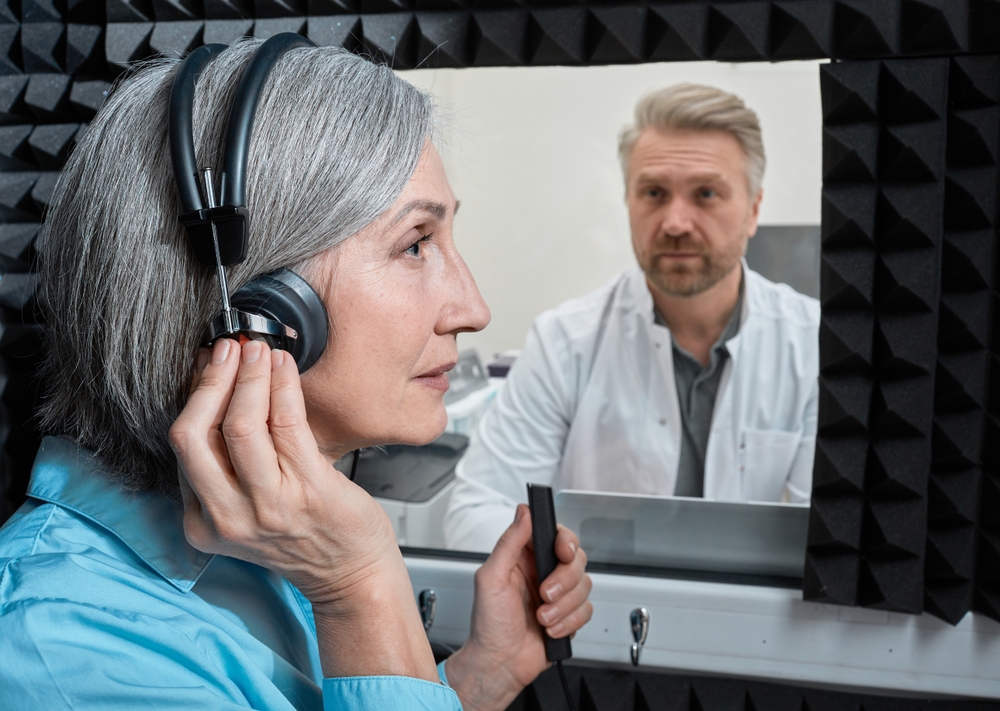Muffled hearing can present for a wide variety of reasons. For most people, it’s a temporary experience. In other cases, muffled hearing can be a precursor to more significant hearing-related issues. In part, that’s because–outside of sudden hearing loss–hearing loss is typically not a condition which develops suddenly. Symptoms build slowly and over time.
Often, one of the first noticeable symptoms is a sense that sounds feel muffled, distorted, or quieter. However, it’s important to point out that muffled hearing in and of itself is not always a sign of permanent hearing loss. Indeed, millions of people experience muffled hearing every year.
You may be wondering: when should I be worried about muffled hearing? Generally, the answer varies. Understanding the root cause of your muffled hearing is critical to finding the right treatment approach. Prompt solutions can sometimes help get your hearing back to normal–or, at least minimize possible damage. Talking to your hearing specialist can help you start this process, often resulting in successful treatments–so you can continue enjoying the sounds of your everyday life.
What is muffled hearing?
Muffled hearing occurs when sound is unable to travel through your outer, middle, and inner ear in the way that it normally does. This leads to a noticeable drop in sound quality. In most cases, those with muffled hearing can still hear some or even most things–but everything sounds quieter or distorted. This may especially impact your ability to discern and understand voices and spoken language.
In many cases–and depending on the underlying cause–muffled hearing can be accompanied by a sense of fullness or stuffiness in your ears. Many people have experienced this feeling temporarily–for example, when they have a cold or when they are flying. Muffled hearing is not always accompanied by this feeling, however.
What causes muffled hearing?
Muffled hearing can be caused by a wide variety of issues–and this will inform the symptoms of muffled hearing that you experience. Determining the root cause of your muffled hearing can be important in developing an effective treatment plan. Some of the most common causes of muffled hearing include the following:
- Earwax buildup: Normally, earwax is a good thing. It helps keep your ear canal healthy. However, too much earwax can eventually cause muffled hearing (or even hearing loss). Try a few drops of hydrogen peroxide in your ear to loosen things up. Do not use a cotton swab to try to dislodge the earwax, as such cotton swabs can condense your earwax and make the problem worse. If the issue persists, see your hearing specialist.
- Infection: Sometimes, issues such as infections (such as sinus infections or ear infections) can cause inflammation in the ear canal (this is especially true with ear infections). This inflammation can cause your ear canal to swell shut, effectively diminishing your ability to hear. Muffled hearing symptoms caused by infections will usually clear up once the underlying illness has been treated.
- Travel: The changing air pressure associated with air travel can often cause a feeling of fullness in the ear, accompanied by muffled hearing. In most cases, this feeling will pass quickly and your normal hearing will be restored.
- Meniere’s Disease: Meniere’s disease is a chronic balance and hearing issue. Over time, this disease can cause tinnitus, hearing loss (often starting with muffled hearing), and dizziness or loss of balance. There is no cure for Meniere’s Disease, but symptoms can be managed.
- Age related hearing loss: As you age, your hearing can diminish due to natural causes. After all, there are few senses as sharp when you are 80 as when you are 18. This natural diminishing in your hearing ability can cause muffled hearing over time.
- Sensorineural hearing loss: Hearing loss caused by noise damage can sometimes result in muffled hearing. Unfortunately, this type of hearing loss is usually permanent. Muffled hearing is often one of the earliest noticeable symptoms; but by the time you notice the distorted sounds, damage to your stereocilia has likely already occurred. You should seek out treatment promptly to avoid your hearing growing significantly worse quickly.
The exact symptoms of muffled hearing will vary depending on the root cause.
Is there a cure for muffled hearing?
Not all forms of muffled hearing have a cure. The treatment for your muffled hearing will change depending on the root cause. For example, if excess earwax buildup is the main cause, your hearing specialist may use specific tools to help you clean out your ear canal. Muffled hearing caused by an ear infection will likely clear up once the infection has been treated, so antibiotics are often prescribed.
When it comes to sensorineural hearing loss, the focus changes to symptom management rather than a complete cure. That’s because sensorineural hearing loss cannot be reversed. However, symptoms can be managed. This may take several forms, but the most common is the use of a pair of hearing aids in order to bring clarity to what you hear.
Hearing aids can help you stay connected to loved ones and go about your day-to-day activities without a significant noticeable impact–especially when this process is started promptly.
How to avoid muffled hearing in the first place
Some types of muffled hearing are difficult to avoid–no matter what. For example, ear infections and sinus infections are difficult to reliably avoid.
However, in most cases, regular visits to your hearing specialist can help you avoid many of the causes of muffled hearing and detect any permanent hearing loss early. These regular checkups can help you stay on top of your hearing health and get treatment quickly.
Find a provider today to schedule your hearing checkup.



